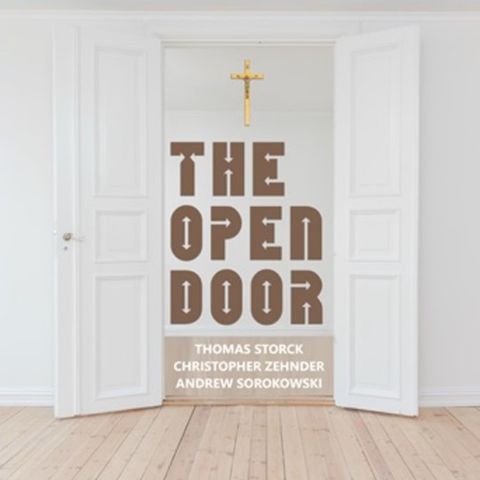WCAT Radio The Open Door (June 14, 2019)
Jun 15, 2019 ·
1h 5m 7s

Download and listen anywhere
Download your favorite episodes and enjoy them, wherever you are! Sign up or log in now to access offline listening.
Description
In this episode of The Open Door, hosts Jim Hanink and Mario Ramos-Reyes invite Peter Redpath and Heather Erb to discuss the following questions: 1. Which Thomists have contributed most...
show more
In this episode of The Open Door, hosts Jim Hanink and Mario Ramos-Reyes invite Peter Redpath and Heather Erb to discuss the following questions:
1. Which Thomists have contributed most to your way of “thinking Thomistically”?
2. Just what is philosophical dialectic?
3. Which of the following is most satisfactory and why?
Philosophy is: the attempt to justify basic beliefs and the analysis of the concepts in terms of which they are expressed. the science of all things learned through their ultimate causes by natural reason. chiefly a logical system of abstract essences, or ideas, and their impersonal, essential relations. chiefly a cooperative, trans-generational, individual, cultural, and psychological enterprise.
4. How does the classical virtue of prudence fit in the philosophical enterprise?
5. Has today’s dominant culture largely subverted the everyday meaning of “psychology” and “psychological”?
6. How is it that thought exists in the soul?
7. What is Christian Philosophy?
8. How do you understand liberal democracy? What problems does it face?
9. Can there be a conservative democracy? What about a natural law liberalism?
10. BONUS QUESTION: How would you assess, in broad terms, the platform of the American Solidarity Party?
show less
1. Which Thomists have contributed most to your way of “thinking Thomistically”?
2. Just what is philosophical dialectic?
3. Which of the following is most satisfactory and why?
Philosophy is: the attempt to justify basic beliefs and the analysis of the concepts in terms of which they are expressed. the science of all things learned through their ultimate causes by natural reason. chiefly a logical system of abstract essences, or ideas, and their impersonal, essential relations. chiefly a cooperative, trans-generational, individual, cultural, and psychological enterprise.
4. How does the classical virtue of prudence fit in the philosophical enterprise?
5. Has today’s dominant culture largely subverted the everyday meaning of “psychology” and “psychological”?
6. How is it that thought exists in the soul?
7. What is Christian Philosophy?
8. How do you understand liberal democracy? What problems does it face?
9. Can there be a conservative democracy? What about a natural law liberalism?
10. BONUS QUESTION: How would you assess, in broad terms, the platform of the American Solidarity Party?
Information
| Author | WCAT Radio |
| Organization | WCAT Radio |
| Website | - |
| Tags |
Copyright 2024 - Spreaker Inc. an iHeartMedia Company
